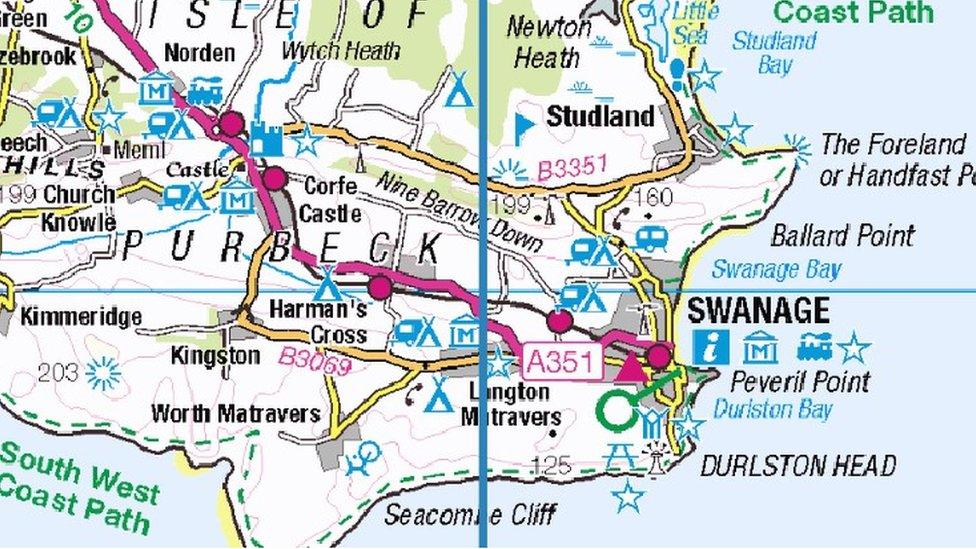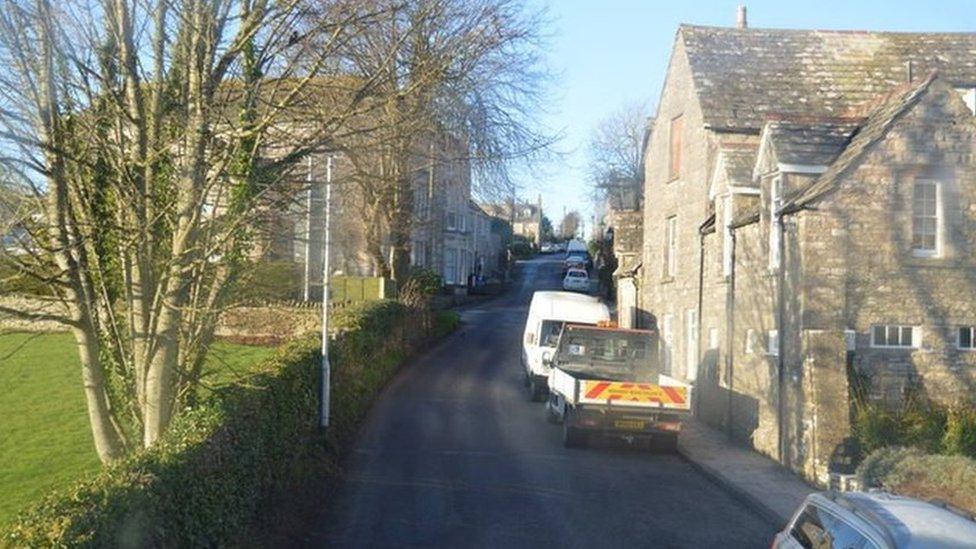Map norths converge on Dorset village in historic first
- Published

Ordnance Survey said the historic triple alignment made landfall in Langton Matravers near Swanage on Wednesday
A small village has made map reading history and become the first place where true, magnetic and grid north have met at a single point.
According to the Ordnance Survey (OS) the historic triple alignment made landfall in Langton Matravers, near Swanage in Dorset, on Wednesday.
It will stay converged for three and a half years as it travels through the UK.
OS spokesman Mark Greaves said it was not related to climate change.
Records held by the OS, Britain's national mapping service, date back to the 1930s but Mr Greaves said this was the "first time ever in British mapping history" the three norths had aligned.
"Magnetic north has a habit of wandering around, but this is unusual, it's not been in this orientation for hundreds of years," he added.
'Wandering' North Pole
Grid north is the blue line on an OS map that points to the North Pole.
True north is the direction of lines of longitude that also converge at the North Pole, but this varies from grid north as it reflects the curve of the earth.
Magnetic north marks the north-ward line to the magnetic North Pole.

Langton Matravers makes map reading history after true, grid and magnetic north aligned
The position of the magnetic North Pole moves continually north-westward due to adjustments in the magnetic field in the core of the Earth.
It it this "wandering" which had created the convergence and the historic alignment, Mr Greaves said.
Map readers are taught to know the difference when navigating with a compass between magnetic north and grid north, it is also crucial for navigating in aviation and shipping.
But it would not make much of a difference to map reading for the duration of alignment, "just make it slightly easier," Mr Greaves said.
According to the OS, the converged line will pass through nearby Poole by Christmas, before moving reaching Hebden Bridge in Yorkshire in August 2024.
It will leave the English coast at Berwick-Upon-Tweed in August 2025.
It does not hit land again until roughly May 2026 at Drums. Its last stop in Scotland, and the UK landmass, is Fraserburgh around July 2026.

Follow BBC South on Facebook, external, Twitter, external, or Instagram, external. Send your story ideas to south.newsonline@bbc.co.uk, external.